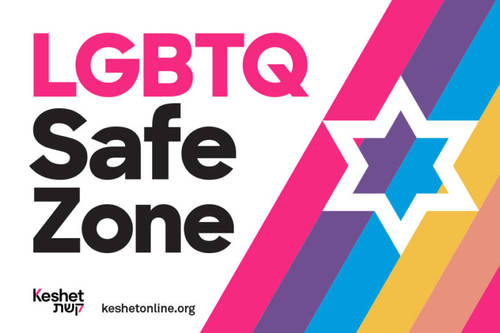Dear friends,
Tisha B’Av (the Fast of the Ninth Day of the Hebrew month of Av), the saddest day in our tradition’s calendar, begins this evening. On this day, from sunset to sunset, many of us will abstain from eating, drinking, and other pleasurable activities as we mourn the greatest tragedies in Jewish history, such as the destruction of our ancient Holy Temple.
It is noteworthy that we begin the observance of Tisha B'Av by gathering as mourners to read from the biblical book of Lamentations, or Eikhah. Eikhah -- both the word and the book that bears its name -- is, essentially, an outcry. We mark this day, first and foremost, with our tears.
Sometimes, when the hurt is too raw or the anger is too fierce, all there is to do is cry.
Like so many of you, I have done my share of crying these past few months — I have wept for the dead, for the sick, for bereaved families, for those who have lost work and those who are forced to put themselves at risk in order to work. I have wept out of lonliness and longing for community, and out of the frustration of trying in vain to juggle everything. I have cried because of the falsehood, selfishness, injustice, oppression, and violence that have during this time seemed uniquely rampant and ascendant in our world, while compassion and kindness have seemed in short supply. And I have cried for my children, who have had to navigate the unprecedented challenges and dangers of this moment, and who have had to shoulder burdens that should not be theirs to bear.
But our faith affirms that in our tears, we keep good company. According to Jewish tradition, God is also perpetually in tears due to the brokenness of our world. One of the first teachings in the Babylonian Talmud, the central sacred text of our ancient rabbinic ancestors, is that God arises several times each night, unable to rest, and roars like a lion in pain, crying out, “Woe to Me! For because of My children’s sins I destroyed My house, burned My Temple and exiled them among the nations of the world.”
In the rabbinic consciousness, the destruction of the ancient Temple was the greatest of cataclysms, an event that involved not only the deaths of thousands but that precipitated centuries of Jewish homelessness, powerlessness, and pain, and as such, it came to symbolize the damaged and unredeemed state of our world.
A piece of me draws comfort from this notion, that God looks down at our world and cries out loudly, like an injured lion, alongside us; that God weeps along with us.
But I also believe in this teaching our tradition is offering us more than the mere comfort of an empathetic God. According to the ancient rabbis, the sin that resulted in the destruction of the Temple was sinat hinam, unfettered, free-flowing hate. It’s not that this hatred was baseless — which is how the term sinat hinam is often, but wrongly, translated. People then, just as today, had reasons for their animosity, however misguided those reasons may have been. What was unrestrained was people’s willingness and ability to act on their malevolence. Our rabbinic ancestors taught that ruin and catastrophe, destruction and death, is the inevitable end result of a society where a lack of concern for one another is not only pervasive, but also unchecked. Each and every night, then, and especially on a night like tonight, God wails and weeps along with us because of the devastation loosed upon the world thanks to contempt run rampant.
But if unrestrained hate is the cause of the world’s brokenness, then we also know the way toward repair. The way to begin putting the shattered pieces of our hearts and our world back together is through ahavat hinam, unfettered, free-flowing love.
What kind of love is that?
It’s the love that moves us to support and lift up the vilified, the dehumanized, the marginalized, and the vulnerable in the face of resurgent and resilient threats to their freedom, equality, and safety. It’s the love that says whatever our differences, we are all of us siblings, children of the same God, all of us equal in our worth and infinite in our dignity, all of us fundamentally responsible to and for each other.
These are uniquely difficult times, to be sure. We have lost so much, and the way forward is still so uncertain. But what Tisha B'Av offers us is a reminder that If we all commit ourselves to ahavat hinam; if all of us commit ourselves to welcoming the stranger and seeing in the face of the other our sibling; if all of us commit to advancing unrestrained love in the face of a world torn asunder by free hate — it might just save us. We might yet be able to put the broken pieces of this world back together and build of this world a sanctuary fit for the indwelling of a God of compassion, justice, and peace. May we merit to see such a world built speedily and in our days.
L'shalom,
Rabbi Michael Knopf




